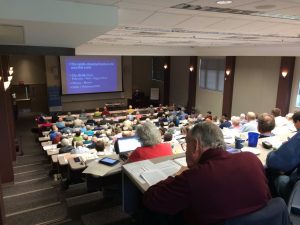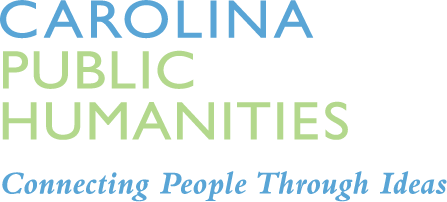Faculty Best Practices
What to Expect and How to Prepare

Why Best Practices?
Speaking at our events is different than giving a conference paper, a lecture to your peers, or even leading an undergraduate class — although of all three it is closest to the last. The Program in the Humanities cherishes the diversity of speaking styles and content our scholars bring to our events, and we offer the following guidelines to faculty so you may better prepare.
Expectations
Speakers are expected to attend the entire event. In the case of multiple speaker seminars, these means listening to all your colleagues talks and participating in the panel discussion if there is one. Exceptions to this rule must be cleared with Program staff ahead of time and may result in a prorated honorarium. Speakers are expected to interact with their colleagues’ ideas in the panel session, and with attendees during breaks and meals.
General Content and Approach
Our audience is well-educated, well-traveled, and interested in learning about the world. The best talks will contain a mixture of general knowledge of the field, individual research interests, and a thematic argument or thesis underpinning the presentation. To avoid alienating the audience, do not use jargon-laden language, undefined terms (that you might take for granted), and arguments/themes that focus more on issues in your field rather than those accessible to everyone. At the same time, be aware that our participants are highly-educated adults, so you do not need to speak down to them.
Speak, Don’t Read
In general, avoid writing out your entire lecture unless this is your common delivery method and you are able to do so with sufficient eye-contact and a natural delivery. Our audience appreciates a more conversational tone and is generally patient with speakers who extemporize here and there, provided they stay on topic. Evaluations consistently show that participants have little or no patience for papers that are read from beginning to end.
Save Questions for the End
Unlike a traditional class in which there is always the next session to finish what you’ve started, our seminars are one-off events. The audience is interested in hearing all you’ve prepared and do not want audience questions or comments derailing your presentation. In seminars with more than 40 people, we will take questions at the end of your presentation using a microphone so that speakers and the audience can hear question. Please respect this convention as it helps us stay on schedule.
Alternative Formats
Not all presentations need to follow the formula outlined above. We’ve had very successful (and quite unsuccessful) talks that rely on audience participation throughout. We urge you to contact us ahead of time, however, if you plan to do this so we can help you prepare. Our crowds tend to be too large for discussion, so don’t expect full participation. In most cases, we urge you to present rather than interact in your allotted lecture time.
Visual Media/PowerPoints
Our audience appreciates visual images. As in any presentation, design slides for their visual appeal rather than their word content. Wordy slides will distract the audience as they will read rather than listen. Avoid reading passages off of the slides as this is not an enjoyable experience. Instead, use one or two keywords and images to make your points. We also recommend keeping PowerPoint presentations to fewer than 20 slides unless you have rigorously timed out your transitions. Here are some examples of successful slides:
Dress Code
Please wear appropriate business or business casual attire. In most cases we will use lapel microphones, so be sure you have a belt, pocket, or other secure piece of clothing for attaching the receiver. Nighttime events often will include dinner, so participants may be dressed for dining.
In Case of Emergency
If for any reason you are unable to make it to the event or are having difficulties, please contact staff immediately. Cell numbers for appropriate staff will be provided in preparatory emails. Do not under any circumstances miss your presentation without notifying us.
We hope you enjoy your experience working with the Program in the Humanities and appreciate your feedback.



